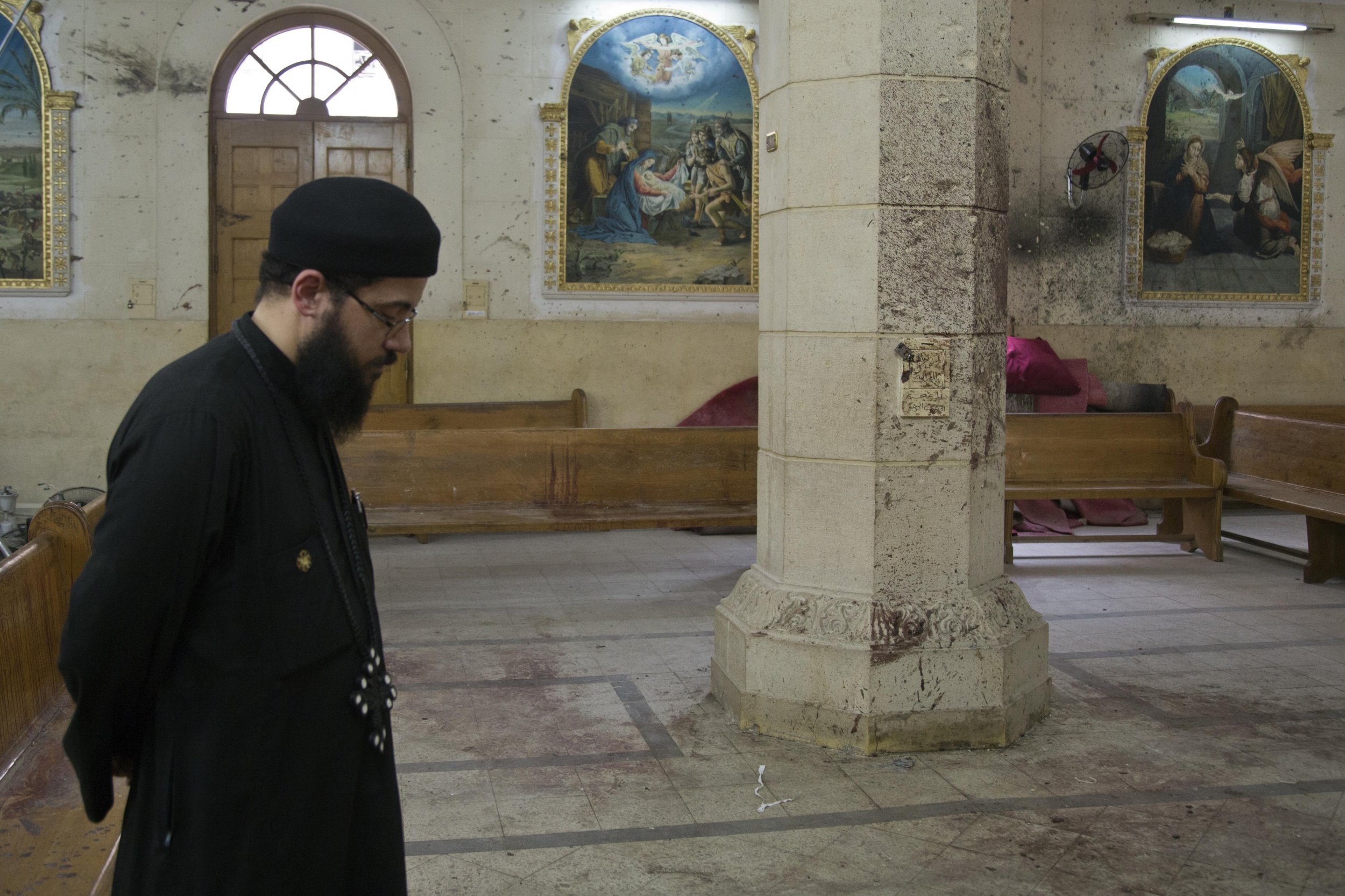
This article originally appeared on The GroundTruth Project.
Faheem Nassim wasn't supposed to work on Palm Sunday.
But when the retired 57-year-old church bus driver got a call from St. Mark's Cathedral — his childhood parish in Alexandria, Egypt — he didn't hesitate to fill in as an extra guard on the Sunday before Easter. He kissed his wife of 31 years, Sameera, that morning like he did each morning, and went to his second home, the ancient church adorned with lions and Coptic engravings.
Ten hours later, the man known to many as a second father was among the remains of bodies left to be identified in the morgue, only recognizable to his 29-year-old son, Meena, by a scar on his disembodied leg.
"What do you do when you see the body of your father, lying near to the body of a suicide bomber who killed him?" Meena asked. "You cry for your father, you cry for yourself and you cry for your country."
Nassim was guarding St. Mark's, the site of one of two suicide blasts at Coptic churches in Tanta and Alexandria. At least 44 people were killed and hundreds injured. The Islamic State militant group (ISIS) claimed responsibility for the attacks, and President Abdel Fattah al-Sisi soon declared a three-month state of emergency.
"We knew persecution and blood would come again," says Meena's wife, seven months pregnant. Before last Sunday, they had chosen Giovanni for their unborn son's name. Now he will be named Nabeel after his late grandfather.
"Christians have only known this fate in Egypt," she said.
'Second-Class Citizen'
In 2013, then general Abdel-Fattah al-Sisi, now president, ousted the Muslim Brotherhood from power in a widely supported coup. Some of the Islamist group's supporters burned churches in retaliation. Sisi, a devout Muslim appointed by the former Muslim Brotherhood president himself, promised Christians that he would help alleviate longstanding societal tensions. He became the first Egyptian president to attend Christmas Eve mass. But few can point to signs of progress.
Last year, Pope Tawadros II, the head of Egypt's Coptic Orthodox Church and a vocal Sisi supporter, said Copts were attacked about once a month.
Others say that the rate is higher. On April 28, the president is scheduled to welcome Catholic Pope Francis to Cairo amid criticisms of security failings.
The total number of Coptic Christians is unknown as no official census has been done in many years. That's in part because the diminishing presence of Copts is seen as controversial. It is often stated that Egypt's Christians make up about 10 percent of the Muslim-majority country, but recent research and anecdotal evidence would suggest that the Copts are closer to 5 percent of the country.
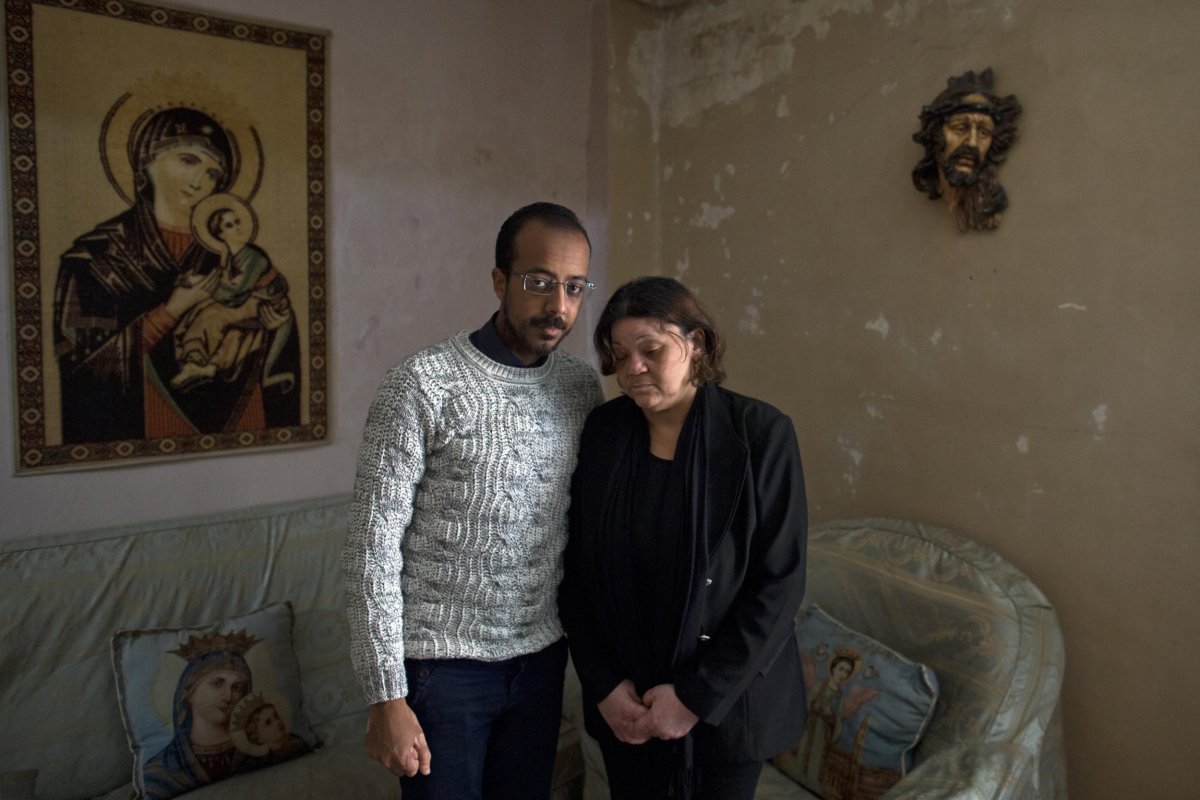
Copts have long been caught in political crossfire between rival groups—mainly Islamist groups vs. the government—and have been made scapegoats. As a result, a steady number of Copts emigrate to the West each year. It is a migration pattern that is occurring across the Middle East with Christian minorities in Israel, Palestine, Iraq, Syria and Lebanon fleeing the violence, intolerance and the economic hardship of the region. Few seem to have plans of returning. As a result, the percentage of the Christian population is diminishing.
"There is a wound in my heart, always, from living in Egypt as a Christian, as a second-class citizen," says Youssef Sidhoum, editor of the nearly 60-year-old Coptic newspaper al-Watani. "One day, we will all truly stand together side-by-side."
A Muslim Brotherhood member who currently lives in hiding in Assiut, an Upper Egyptian town with a relatively large Christian population, chalks up the attack to a tool used by former Egyptian President Hosni Mubarak to strengthen his regime.
"For years he acted like he was the protector and guardian of Christians, but he just used them to politically divide his own people. It worked."
The Gama'a Islamiya, one of Egypt's most extremist and violent Islamist groups that has since claimed to have renounced violence, also stands by their and the Brotherhood's claims of innocence.
"We have nothing to do with the so-called Islamic State," says one member who has consistently refused to meet me for the last three years. He also lives in hiding in Upper Egypt. "I keep telling you: Who do these attacks benefit? The answer is obvious. It's not us."
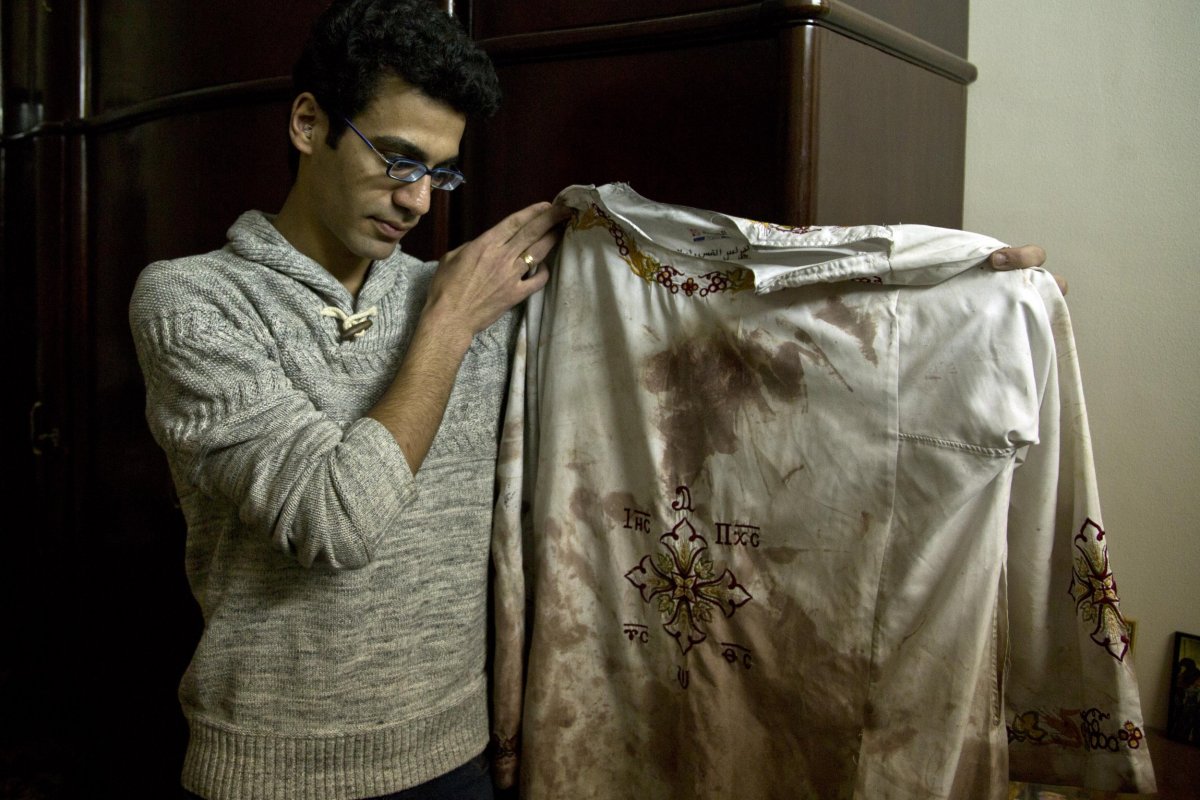
Sectarian Angst
If optics and words are a good measure of loyalty, Pope Tawadros has aligned with Sisi. He has even called him a "savior," offering no criticisms of the president's abysmal human rights records. Pope Tawadros has gone so far as to condemn the Arab uprisings, or Arab Spring, of 2011 that awed the world.
Egyptian activists, who say they're already facing the worst crackdown in modern history—even worse than life under Mubarak—fear that the three-month emergency law will give the government carte blanche to clamp down on all whom they consider enemies of the state. None were willing to speak on the on-the-record for this story, for fear of retribution.
Despite the seemingly unshakable alliance between the Egyptian Orthodox church and Sisi's government, some Copts have become skeptical, if not frustrated by the status quo.
Many Christians in Tanta and Alexandria refused to speak on the record about the political situation. Criticisms of the government are muted. A leader in the community said security forces don't do enough because they rely on appeasing "Islamists group like the Islamic State." Another called Sisi a "saint." Still, another said the government and ISIS are cut from the same cloth.
"You see all the security now at the church," said one congregant in Tanta. "But where were they last Sunday?" She turned to a guard and screamed: "Hey, where were you last Sunday and now you're searching my bag like I'm the one who did something wrong."
The guard laughed.
Indeed, scars run deep in Egypt. Despite widespread denial, analysts say sectarian angst is deeply rooted in society. Copts are underrepresented across Egypt's public sphere, in its judiciary, diplomatic corps, academia and almost all electoral bodies. Perhaps most egregiously, Christians face state-imposed restrictions on the right to build and maintain churches, regulations that Muslims don't face when building mosques. Last year, Egypt's parliament passed a bill to streamline the draconian process. At the time, the bishop of Minya, home to one of the highest concentrations of Christians in Egypt, quipped that "there will be a security official who will stop them."
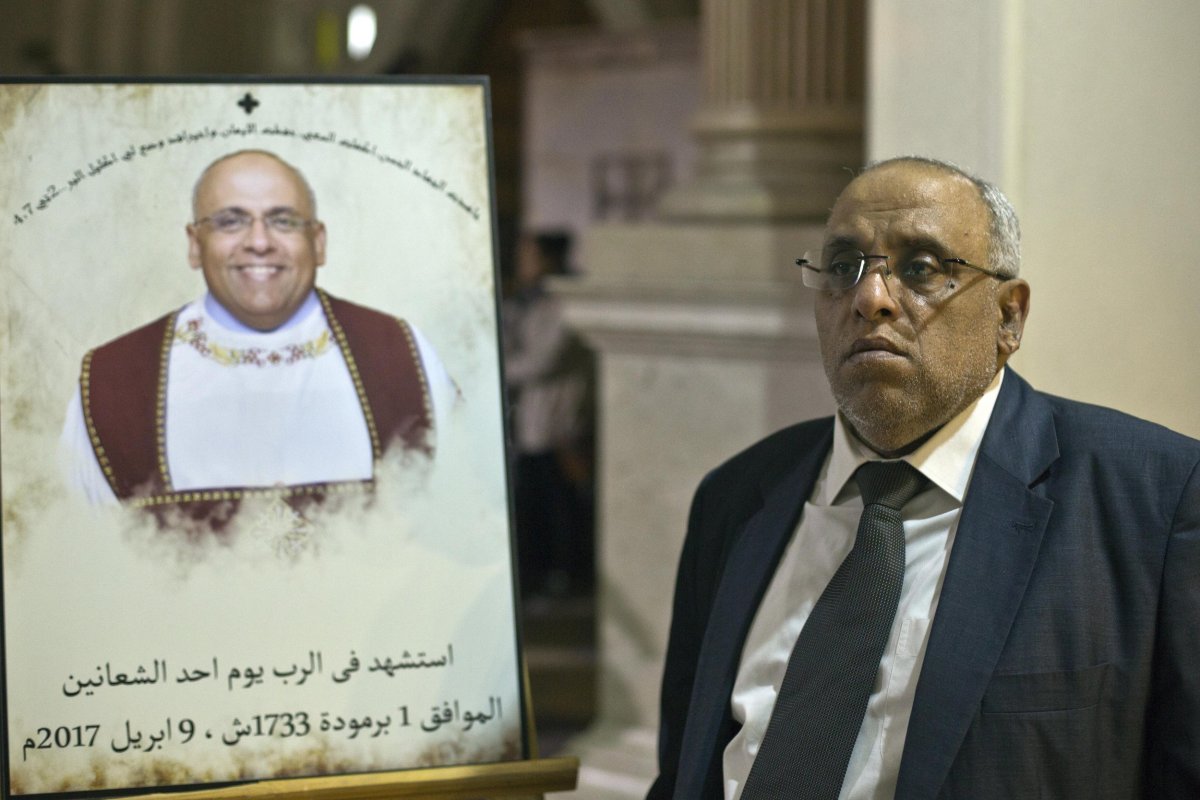
'When Will This All Stop?'
Last Sunday, Father Daniel, 53, presided over mass at Tanta's Mar Girgis (St. George) church, where ISIS attacked.
While he was circling the rear of the 1,700-year-old church and swinging incense, his two sons Bishoy and Kirollos were singing in the deacons booth near the altar. One moment, Father Daniel was signing along to Ave Maria, the next he was running to the site of the explosion, right where Bishoy and Kirollos were singing.
"I saw Kirollos on the ground, he was OK, breathing. But then I saw Bishoy. A part of the big bishop's [ceremonial] chair had lodged into his skull," Father Daniel says, while staring at the still blood-stained floor. "So I picked up him, threw up over my shoulder like Jesus carried the cross. And I carried his still breathing body outside."
Moments later at the hospital, he'd watch his youngest son take his last breath "like an Angel being chosen by God."
"I am the father of this church," he said, holding back tears. His phone won't stop ringing with condolences and he can't walk down the street without parishioners crying in his arms. "But I am also the father of Bishoy. I lost too many children last week. I have faith, but I don't know how we move on from here."
Neither does 52-year-old Soliman Shaker. He lost his twin brother, Magdi, who was standing right behind him, as well as Kirollos and Bishoy. The twins sang in the church's chorus for 40 years. They even sang together when they got married on the same day in the church. Soliman was a chorus coach. The church's youth looked up to him.
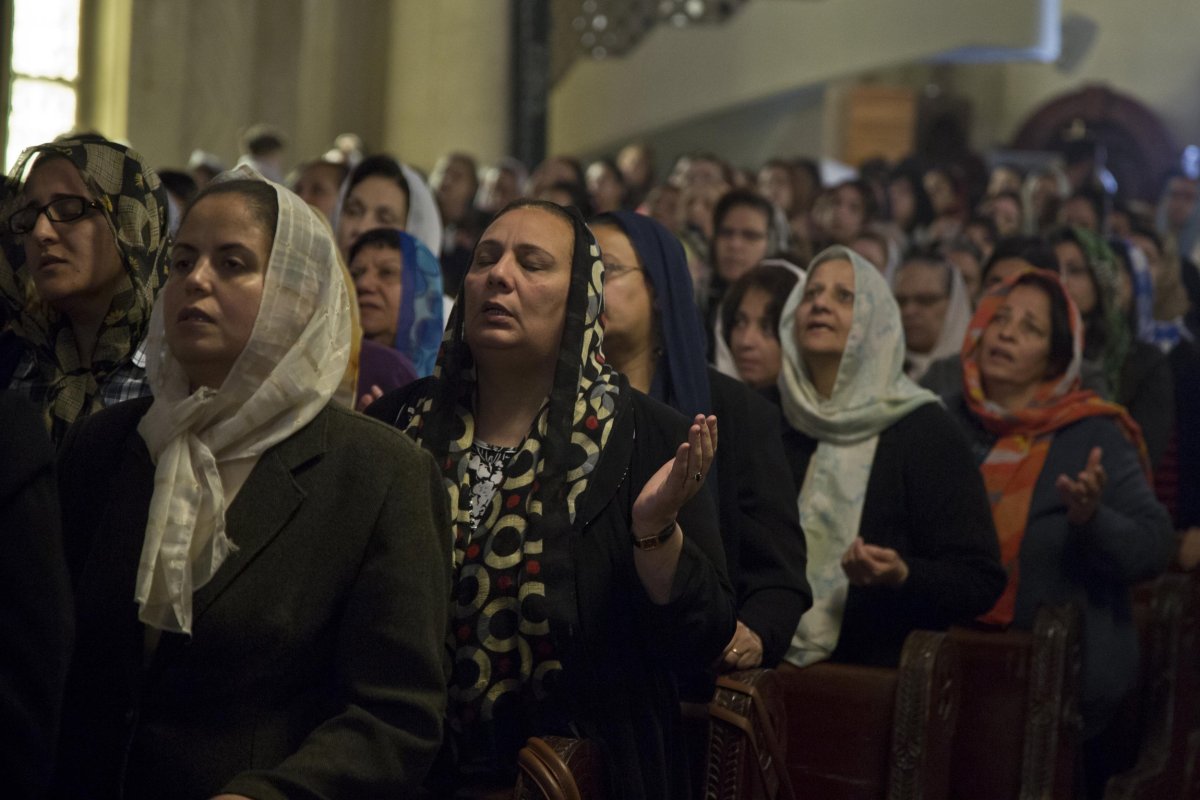
"I don't know how to sing without him," said a 16-year-old who asked not to be named for fear of repercussions at her university. "When will this all stop for us?"
The Nassim family, who sits in a dark apartment fasting in Alexandria, has no answers. By all accounts, church guard and bus driver Nabeel was also a second father to Christian youth—another soul lost in the country's, and region's, senseless wars.
"The night before he died, he told me to stay over at the house because he misses me," recalls Nassim's son Meena, a carbon-copy of his father with his dark skin and close-set eyes.
"I told him I couldn't. And I might never forgive myself for that. But we will keep creating life. My son will spread his grandfather's love. And one day, we will all be Egyptians."
Lauren Bohn is The GroundTruth Project's Middle East correspondent and the co-founder of Foreign Policy Interrupted.
Uncommon Knowledge
Newsweek is committed to challenging conventional wisdom and finding connections in the search for common ground.
Newsweek is committed to challenging conventional wisdom and finding connections in the search for common ground.
About the writer
To read how Newsweek uses AI as a newsroom tool, Click here.








